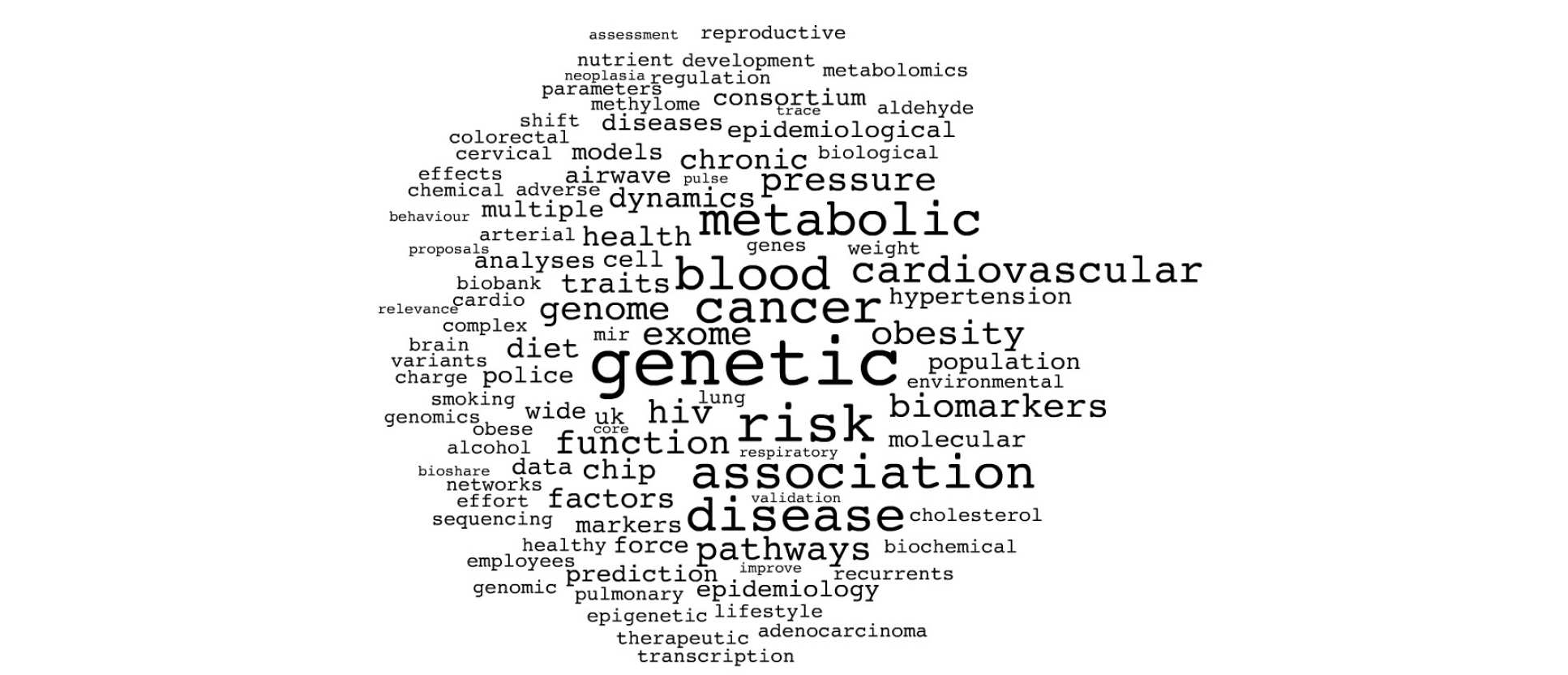At a glance
114 projects
- 15 projects access UK Biobank
- 28 projects access Airwave
22 funding sources
72 unique principal investigators
Med-Bio supports dozens of projects, led by world-renowned researchers - from Imperial College London and elsewhere. Some examples are:
- Genome-wide association study of blood pressure (Professor Paul Elliott, Imperial)
- Comparison of protein coevolution networks involved in thermal adaptation among diverse species (Dr Samraat Pawar, Imperial)
- Relevance of genetic determinants of renal function to health and disease (Professor John Danesh, Cambridge)
- Population genomic tests for mechanisms of ecological speciation in bdelloid rotifers (Professor Timothy Barraclough, Imperial)
- Measuring chemical and non-chemical stressors using exposomics (Dr Martyn Smith, Berkeley)
- Genetic determinants and biological pathways linking major inflammatory biomarkers to disease outcomes (Dr Joanna Tzoulaki, Imperial)
- Exploiting the syntegron technology platform for assembly and optimisation of complex genetic ensembles (Professor Paul Freemont, Imperial)
- Genetics of HbA1c: biological pathways and impact on diabetes and cardiovascular disease risk (Dr Inês Barroso, Sanger)
- Space-time Modelling with R-INLA (Dr Marta Blangiardo, Imperial)
- Does partnership durations and concurrency really matter when modelling HIV interventions? (Professor Marie-Claude Boily, Imperial)
The projects extend across a wide range of domains, such as medical, chemical, metabolic, statistical and computational sciences, with the aim of making major advances in understanding the causes and reasons for disease progression of common human diseases.

Publications derived from Med-Bio-supported projects include:
- The development of a fit-for-purpose UPLC-MS platform, method set, and sample analysis workflow, capable of sustained analysis on an industrial scale and allowing batch-free operation for large studies. http://doi.org/10.1101/gad.280222.116
- The finding that the Schizosaccharomyces pombe ortholog of Nrd1, Seb1, does not function in NNS-like termination but promotes polyadenylation site selection of coding and noncoding genes, associating with 3′ end processing factors. http://doi.org/10.1101/gad.280222.116
- A review of standards for data sharing, that investigates their impact in metabolomics and gives suggestions to improve their adoption. http://doi.org/10.1007/s11306-015-0879-3
The projects are funded by many funding bodies, including:
Some of the bodies that fund the research supported by Med-Bio
Some of the bodies that fund the research supported by Med-Bio








